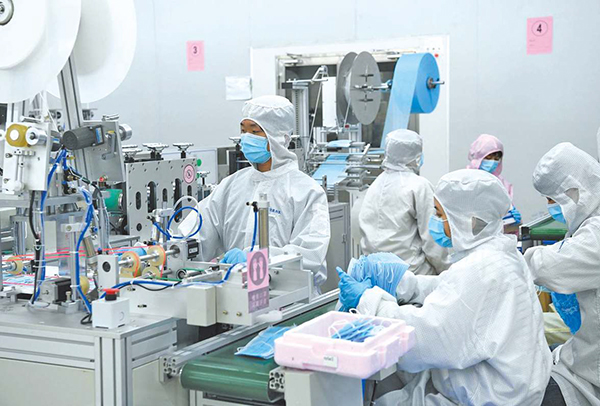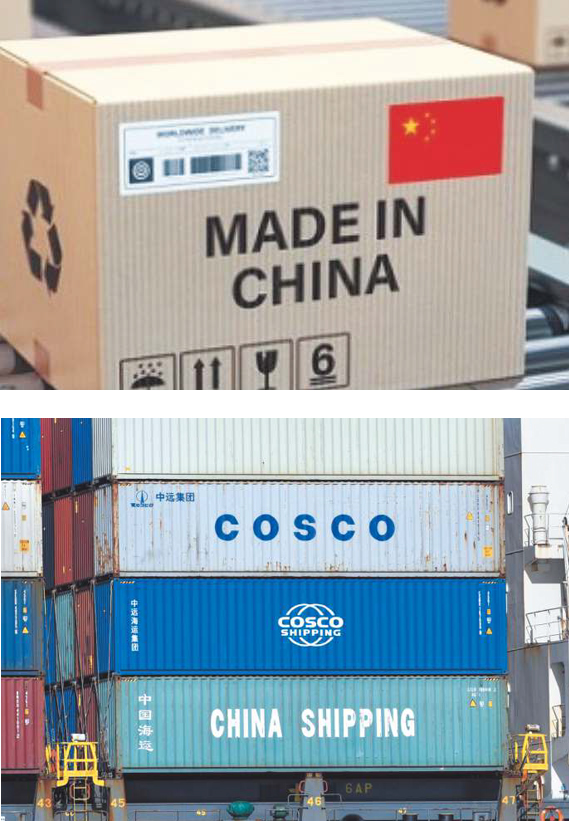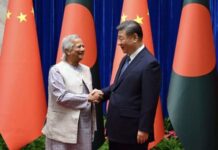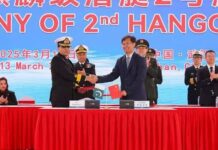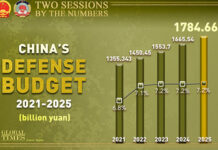A global backlash has been seen building up against China for its initial mishandling of the crisis that helped loose the coronavirus on the world. Covid-19 pandemic has significantly disrupted global supply chains, exposing the reliance of other countries on China for vital products and provoking worries over a more rapid exodus of foreign companies, a trend which has been under way throughout the US-China trade war, which began in 2018.
The disruptions to industrial chains and the drastic decline in international travel are only the most visible features.
After the pandemic, there will be significant changes in international trade, investment and industrial chains. The epidemic has caused huge damage to globalisation. Global public opinion will greatly affect the re-establishment of a post-virus world order. As things stand now, those moving to take the initiative are the U.S. and China.
Australia called for an inquiry into the origin of the coronavirus. Germany and Britain hesitated about inviting in Chinese tech giant Huawei. US president Donald Trump blamed China for the contagion and sought to punish it. Some governments wanted to sue Beijing for damages and reparations.
China responded aggressively, combining medical aid to other countries with harsh nationalist rhetoric and mixing demands for gratitude with economic threats. The result only added momentum to the blowback and growing mistrust against China in Europe and Africa.
US Supply Chains
Since President Donald Trump took office in 2017, his approach to U.S.-China relations included increased pressure via tariffs and trade war rhetoric, and with the onset of an unprecedented pandemic, the stage has been set for both sides to cast aspersions on the other.
Roughly three-quarters of American companies report supply-chain disruptions in China. China’s official Xinhua News Agency threatened to exploit Beijing’s control over medical supply chains as retaliation against U.S. efforts to hold China accountable for its actions during the pandemic.
President Donald Trump, who faces elections on 3 November, has stepped up attacks on China and pledged to bring manufacturing back from overseas. The Trump administration is “turbocharging” an initiative to remove global industrial supply chains from China as it weighs new tariffs to punish Beijing for its handling of the coronavirus outbreak. Trump had been calling the coronavirus “the Chinese virus,” although he stopped doing so later.
A new Pew Research Center survey of Americans conducted in March showed two-thirds say they have an unfavorable view of China, up nearly 20 percentage points since the start of the Trump administration. Positive views of China’s leader, President Xi Jinping, were also at historically low levels. Many saw Chinese power and influence as threat to the U.S.
The U.S. Commerce Department, State and other agencies were looking for ways to push companies to move both sourcing and manufacturing out of China. Tax incentives and potential re-shoring subsidies were among measures being considered to spur changes.
Trump’s China policy has been defined by behind-the-scenes tussles between pro-trade advisers and China hawks; now the latter say their time has come. Trump has said repeatedly that he could put new tariffs on top of the up to 25% tax on $370 billion in Chinese goods currently in place.
U.S. companies, which pay the tariffs, have been groaning, especially as sales plummeted during coronavirus lockdowns. But that does not mean Trump will balk at new ones. Other ways to punish China may include sanctions on officials or companies, and closer relations with Taiwan, the self-governing island China considers a province.
A move to block global exports of chips to blacklisted Chinese telecoms giant Huawei, for example, favoured by hawks in the administration and under consideration since November, has not yet been finalized.
Japan
Both Xi’s proposed trip to Japan and the Tokyo Olympics were postponed due to coronavirus , and Sino-Japanese relations found themselves at a crossroads.
Japanese prime minister Shinzo Abe has proposed building an economy that is less dependent on one country, China, so that the nation can better avoid supply chain disruptions. Disruptions hit the procurement of auto parts and other products for which Japan relies on China, seriously impacting corporate Japan’s activities.
Of the products that rely heavily on a single country for manufacturing, “we should try to relocate high added value items to Japan,” Abe’s remarks were clear. “And for everything else, we should diversify to countries like those in ASEAN.”
Japan earmarked more than 240 billion yen (about $2.2 billion) in its supplementary budget plan for fiscal 2020 to assist domestic companies to move production back home or to diversify their production bases into Southeast Asia.
If the U.S. and Japan, the world’s biggest and third-biggest economies respectively, move away from China, it will have a huge impact on the world’s second-biggest economy.
Europe
France entered into a political battle with Beijing amid rising anti-China sentiments in the continent and aggressive diplomacy by Chinese diplomats. The French ministry of foreign affairs, in early May, summoned the Chinese ambassador for ‘objectionable’ articles on Chinese embassy’s website.
Spokesperson for Chinese embassy in Berlin, Tao Lil, published an open letter to Bild on the embassy’s website. “I followed your reporting on the corona pandemic in general and China’s alleged guilt, in particular, today. Apart from the fact that we consider it a pretty bad style to blame a country for a pandemic that is affecting the whole world and then to present an explicit account of alleged Chinese debts to Germany, the article ignores some essential facts,” stated the letter.
Julian Reichelt, the editor-in-chief of the newspaper Bild criticised Chinese president Xi Jinping for his regime’s failure to come clean about the Covid-19 outbreak. In his letter to Xi, Reichelt said, “Your embassy in Berlin has addressed me in an open letter because we asked in our newspaper Bild whether China should pay for the massive economic damage the coronavirus is inflicting worldwide.””You [Xi], your government and your scientists had to know long ago that coronavirus is highly infectious, but you left the world in the dark about it. Your top experts didn’t respond when Western researchers asked to know what was going on in Wuhan. You were too proud and too nationalistic to tell the truth, which you felt was a national disgrace,” stated the letter.
Australia
Australia was presented with the explicit choice between sovereignty and money when the Chinese Communist Party publicly threatened Australia with trade boycotts for proposing an international inquiry into the global pandemic.
It is business as usual for Beijing to preach mutual respect and non-interference while intimidating countries to get its way. The prime minister declined to criticise Beijing and said China’s position was “a matter for China”.
Quad Countries
The Quadrilateral Security Dialogue is an optimal venue. Established by prime minister Abe in 2007 to discuss regional security issues, the Quad’s members are Japan, India, Australia and the U.S.
The U.S. government is working with Australia, India, Japan, New Zealand, South Korea and Vietnam to “move the global economy forward,” Secretary of State Mike Pompeo said April 29. These discussions include how we restructure … supply chains to prevent something like this from ever happening again,” US secretary of state Mike Pompeo said.
Japan’s Free and Open Indo-Pacific (FOIP) strategy is to work with other Quad powers [Australia, India, and the United States] and Indo-Pacific developing countries to sustain regional economic development and integration under the familiar norms of the rules-based order.
Rather than seeking to bring all supply chains to the U.S. or reorder all trade, the Quad-Plus should should focus on the most critical industries so the U.S. is no longer at the mercy of Beijing for supplies in a pandemic.
Elsewhere in the World
South Korea appears to be planning to shift several important factories from China to India.
In Netherlands, the Chinese embassy accused the newspaper Volkskrant of running ‘far-fetched and malicious’ stories.
China was embroiled in social media disputes not only in Europe, but in Khazakstan, Iran and Singapore. It also argued with the Brazilian education minister over statements that Beijing planned world domination. In Sri Lanka, the Chinese embassy’s Twitter account was restored after it was shut down for allegedly being inflammatory.
China’s Concerns
President Xi, who doubles as the party’s general secretary, speaking at the China’s Politburo Standing Committee, the party’s top decision-making body, on 8 April, said that “as the pandemic continues its global spread, the world economy faces a mounting downside risk.” He added, “Unstable and uncertain factors are notably increasing.” Xi called for “preparedness in mind and work to cope with prolonged external environment changes.” He sounded the call to prepare for “a protracted battle” while assuming the worst.
Comments
China overtook the United States as the world’s top manufacturing country in 2010, and was responsible for 28% of global output in 2018, according to United Nations data.
Many Japanese firms have “bet on China” and depend exclusively on Chinese factories and firms to provide critically important goods. The lesson is that Japanese firms must expect disruption, diversify risk, and design redundancy into supply chains, especially for products critically important to Japan’s stability and security. The other reason is that actual reshoring of strategically indispensable Japanese production – not just “China +1” supply chain management – is a key aspect of Abe’s plan. This could kill two birds with one stone. It could enhance national security and it could also benefit Japan’s small- and medium-sized firms and boost provincial redevelopment plans in ways that help the LDP’s political prospects.
China appears to be concerned that Japan’s move might negatively affect wider foreign investor sentiment. This concern reflects the fact that China needs access to rich Western economies to regain a stable growth and development path, which is critical to Xi Jinping’s legitimacy.
Much will depend on how the U.S. and China rebuild their respective virus-hit economies. If major foreign companies withdraw from China, it will become a big drag on the Middle Kingdom’s economic revival.
Excluding Beijing from a new international economic order, some call it “de-sinicisation” would also pose a protracted economic and diplomatic challenge to China in the years ahead, though it has effectively declared victory over the virus within its borders.Now it’s a zero-sum confrontation, starkly and publicly.
The Morrison government’s proposal for an independent, international inquiry into the cause and spread of the disease was “dangerous”, according to China’s ambassador to Australia, Cheng Jingye.
The proposition from Beijing was very simple. If you want to go ahead and make policies according to your own national interests, and not ours, we will cut your income – through wine, beef, tourism and education sectors.
UP Offers Facilities to Industry Moving Out of China
The Uttar Pradesh government held a video conference with nearly 100 investors and companies from the US on 29 April. US firms Lockheed Martin, Honeywell, Boston Scientific, FedEx, UPS, Cisco and Adobe were among those present. UP Minister for MSME, Investment and Exports Siddharth Nath Singh received several questions regarding the perks that the state could offer.
The state has proposed to provide several facilities to giant corporations of the US if they shift factories and bases from China to UP.
FedEx and UPS were told they could use the proposed Jewar international airport to start their operations. Siddharth Nath Singh also said that the state is willing to discuss incentives according to their requirements. Defence firms such as Lockheed Martin were told that they could use the Uttar Pradesh defence corridor.
Global companies have been assessing move of their bases out of China due to the US-China trade war, which has led to increase in the prices of products, hitting profit margins of the companies. The central and state governments want to leave no stone unturned to attract the foreign investors.
UP has already announced various incentives such as capital subsidy, land subsidy and a bouquet of incentives and there are 90 lakh MSME units which could be used for multiple purposes. The state was also considering an amendment to the state’s industrial policy to attract companies that were keen to shift their base from China.


